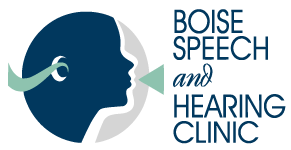1. The sooner, the better. The most critical years in a child’s development of speech and language skills is 0-3 years of age. During this time, a child’s brain is like a ball of clay, ready to be molded and filled with alllll things speech and language. Intervening during this period can lead to better outcomes. I love when a mom says “I feel like 2 is too young to be here…” and then she gets to hear all the reasons why it’s GOOD!
2. If your pediatrician recommends the “Wait and see approach” please get a second opinion. Time is critical. Instead of “Wait and see” let’s start normalizing “Go and be proactive!” If your pediatrician, family member, or friend dismisses your gut feeling that there might be a speech-language concern, it is more than okay (encouraged actually) to get a professional opinion. Please consider consulting with a trained expert in the field (AKA a speech language pathologist). Some clinics, like ours, can even do a 15 minute free screening to see if a full evaluation is recommended..”
3. Don’t panic if therapy looks like play. I remember early in my career when parents thought all I was doing was playing with their child. Looking back, that was a huge compliment. Children 0-3 years of age learn best through…you guessed it, PLAY. Chances are, your therapist is sneakily “hiding” speech and language goals within play.
4. Ask for resources, books, strategies, and more. One of my favorite things about working with little ones is the opportunity to empower and educate families. Chances are, your therapist has an arsenal of “gold” they are dying to share with you. Ask and you shall receive a surplus of good info!
5. Functional language first, manners later. This one might be controversial for some…When working with little ones with language delays, you will never find me working on “Please” requests. Why?? What does “Please” mean? Please more? Please stop? Please help me? Please what? Instead I work on specific and functional words/requests. Some of my favorites are: more, done, stop, go, help. Starting out, we need to give a child functional and meaningful language. Once that’s been achieved, manners, such as “please” and “thank you” can most definitely be encouraged.


